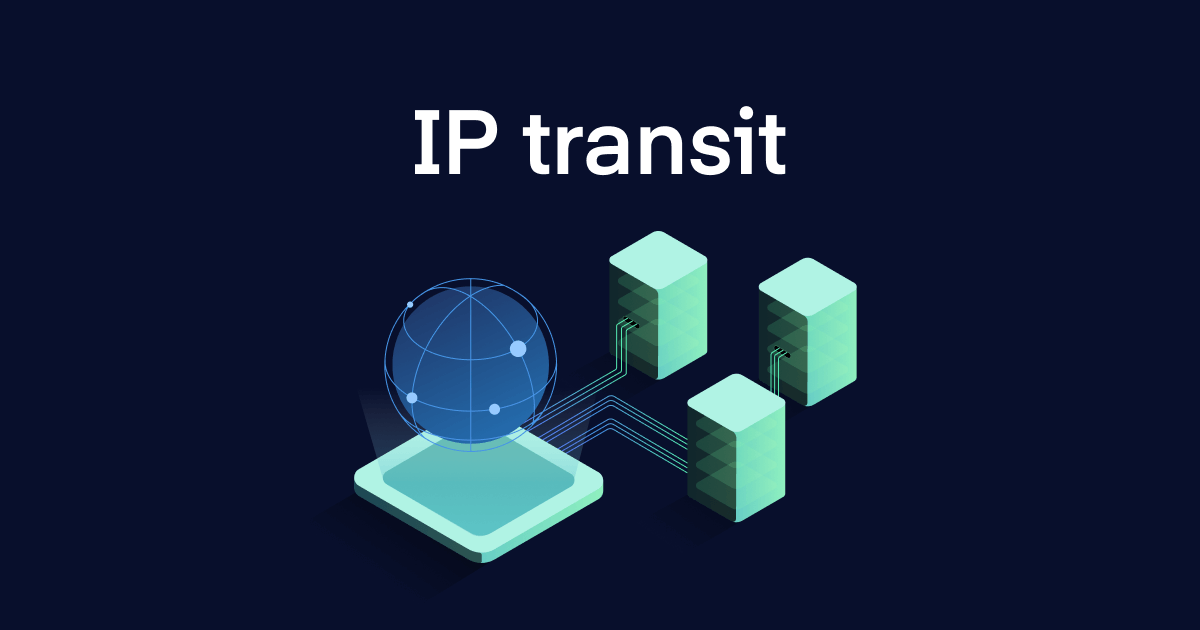In the ever-changing world of internet connectivity, both businesses big and small depend on IP transit to guarantee seamless access to the digital world. IP Transit is the backbone for modern communications networks. It powers everything from cloud-based services to E-commerce platforms. This article will cover the fundamentals of IP transport, along with the functions and roles of IP providers.
IP transit, often referred to as internet transit, is the service of allowing network traffic to cross or “transit” a network, enabling users to connect to the wider internet. IP transit companies are firms that have the infrastructure to transfer data packets across networks. They are essential in making sure that internet connectivity is safe and effective for users and businesses.

When it comes to IP transit services, businesses have a range of choices to select from. Some providers provide basic services to connect to the internet without any customizations or other features. Some providers offer more advanced services such as managed IP transit that includes additional assistance, monitoring, and security features. The choice of service depends on the specific needs and requirements of the company.
Pricing is a crucial factor for companies to consider when selecting the right IP transit provider. The cost of IP transit varies substantially based upon factors like bandwidth requirements geographical location, bandwidth requirements, and service level agreements. It is important for businesses to be aware of the various pricing and cost structures that are offered by service providers to make informed choices and gain the best value from their investment.
Alongside pricing companies should also take into consideration the quality and reliability of the IP transit company. Carrier-grade networks with backbone connectivity of 100G or 400G, offer the reliability and scale needed to support mission critical applications and services. Automating the entire process from beginning to end further increases efficiency, and creates seamless customer experiences.
IP-Access offers a customizable and flexible solution for companies that are seeking to streamline their network connectivity. This is a great option for companies with older installations or specific requirements. With features like IPv4/31 as well as IPv6/127 transfer networks in default, companies can adapt their connectivity to their particular requirements without the hassle of BGP sessions.
IP-Access, in relation to internet, also includes basic DDoS (Distributed Denial of Service) protection against attacks that are volumetric. This adds an additional layer of protection for businesses and their networks. This protects against cyber threats which could result in downtime or the loss of revenue.
Inter.link Portal is a simple and efficient way for businesses of any size to access IP Transit service. Businesses can deploy IP Transit in just a few minutes in just a few clicks. They choose their preferred locations, bandwidth needs as well as the speed of port connections and duration of contract. This speeds up the process which saves time and money. The business can then concentrate on their primary business.
IP Transit is crucial to the modern internet. It allows businesses to connect to each other, and also collaborate with other businesses around the globe. Knowing the fundamentals of IP Transit, the roles of IP Transit providers, their range of services, as well as how they determine their pricing and costs will assist businesses in making informed choices. They can also ensure that they are connected to thrive in the digital world that we live in today. IP Transit is the core of all modern communications networks, be it for cloud-based services, providing power to platforms such as ecommerce, or connecting remote offices.


